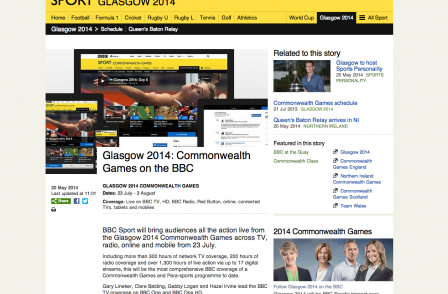
Around 3,000 BBC journalists who are members of the National Union of Journalists are to hold a 12-hour strike from 11.59am on Wednesday, 23 July, coinciding with the opening of the Commonwealth Games in Glasgow.
Turnout for the ballot was 46.6 per cent and of those who voted – 77.2 per cent were in favour of strike action.
The strike is in protest at this year's pay offer of one per cent (with a minimum rise of £390).
NUJ general secretary Michelle Stanistreet said: "The decisive turnout and result clearly demonstrates that journalists across the BBC are not prepared to put up with paltry pay deals any longer, while those running the corporation continue to enjoy their lavish salary and perks at the same time as dishing out lectures about the need for staff to ‘get austerity’.
“When it comes to executive perks, lavish salaries for managers and jobs for their mates, the BBC executive is the board that likes to say yes. When it comes to paying journalists and programme makers that deliver the content that makes the BBC the envy of the world, the BBC has tried to peddle the line that a below inflation deal is the only way of keeping their political and corporate enemies at bay in the forthcoming licence fee settlement. It does not wash. The NUJ believes there needs to be radical reform at the BBC, with executive pay capped at £150,000 – that would free up the money to ensure fair pay for all staff.
“BBC managers have embarked on a major public relations exercise during the course of this ballot with one intention – to demonstrate that the NUJ is out of touch with its membership and that the disenchantment with the management of the corporation is only skin deep. Today’s result demonstrates how badly out of touch they are.
“NUJ members want the BBC executive to robustly campaign for a decent licence fee settlement that will secure the future of the public service broadcaster and allow it to thrive. Death by a thousand cuts – with many more hundreds of damaging job losses set to be announced this week – is no future at all for the BBC.
“Members are clear that they are prepared to take sustained action in this dispute and will name further dates if the dispute is not resolved. It’s time for the BBC to revaluate its position and to resolve this dispute by negotiating a sensible and fair pay rise for staff who work so hard, for modest salaries, because of their genuine commitment to public service broadcasting.”
BBC News employs some 8,000 staff, around 5,500 of whom are understood to be journalists.
The BBC has been promising that Glasgow 2014 will be its biggest ever Commonwealth Games with 1,300 hours of live coverage.
A BBC spokesman said: “We will do all we can to bring our audience uninterrupted coverage of the Commonwealth Games. In the meantime we will continue to speak to the unions in an attempt to resolve this dispute. However we have already made an improved offer and we are mindful that across the BBC we need to make significant savings and deliver more for less.”
Email pged@pressgazette.co.uk to point out mistakes, provide story tips or send in a letter for publication on our "Letters Page" blog
